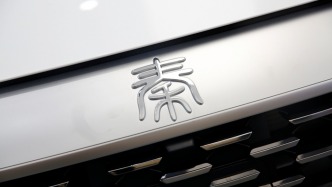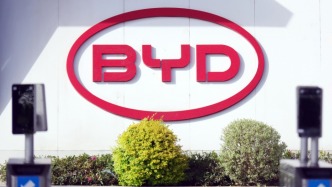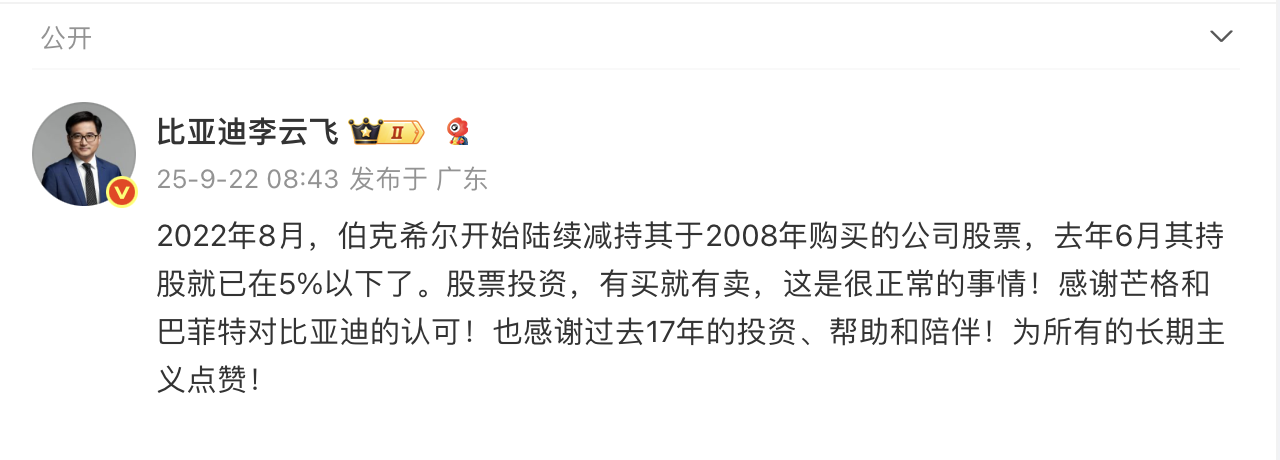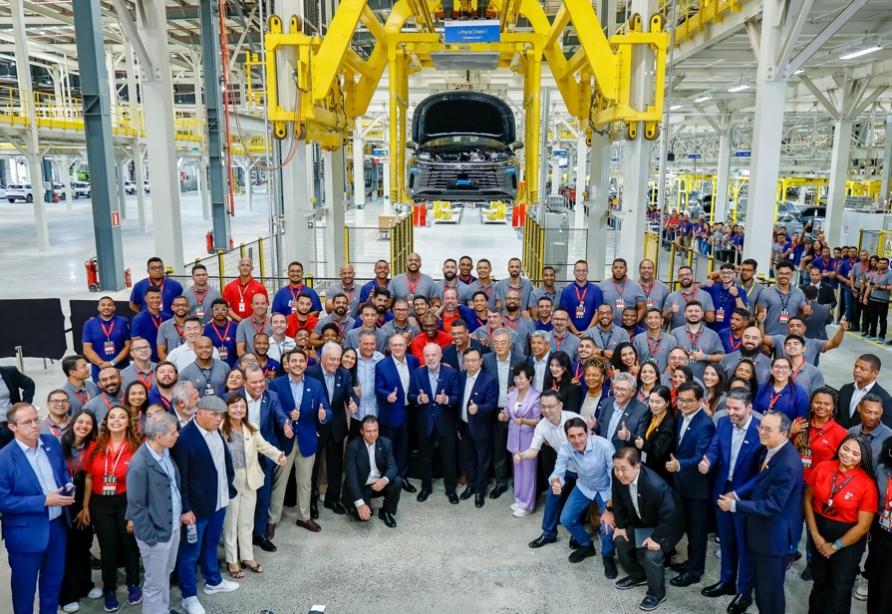
On October 9th, local time, in Camaçari, Bahia, Brazil, a brand-new BYD Song Pro rolled off a modern production line. This wasn't just the launch of a new car; it marked a significant milestone in BYD's global journey: the 14 millionth new energy vehicle produced. This moment has left a deep mark in the annals of the global automotive industry and established a new height for Chinese automakers in South America.

In Bahia, a land once resounding with the roar of Ford engines, a silent yet profound "handover" is unfolding. BYD founder Wang Chuanfu personally handed the car keys to Brazilian President Lula da Silva, witnessed by Chinese Ambassador to Brazil Zhu Qingqiao and other dignitaries from both sides. The former factory site of a traditional fuel vehicle giant has now become a bridgehead for China's new energy vehicle industry to enter the global market, signaling a profound reshaping of the global automotive industry.

14 million—this figure reflects BYD's strong strength as the world's first new energy vehicle company to achieve this feat. It also demonstrates the Chinese auto industry's evolution from a "market-for-technology" model to a global leader, driven by innovation and technological leadership. The choice of Brazil to present this historic vehicle to President Lula is a strong signal that Chinese intelligent manufacturing, with its green and innovative core, is becoming a reliable partner and powerful supporter for emerging market countries in advancing industrialization and achieving low-carbon transformation.
At the ceremony, President Lula emotionally stated that the BYD factory has helped local people "regain their dignity." These brief words carry profound expectations and achievements. With a massive investment of 5.5 billion reais (approximately 7.1 billion RMB), 20,000 jobs created directly and indirectly, and a modernized facility with a planned annual production capacity of 150,000 vehicles, BYD offers more than just electric vehicles in a region plagued by deindustrialization. It also promises a resurgence of "reindustrialization" driven by green technology, injecting a powerful shot of sustainable development into the regional economy.
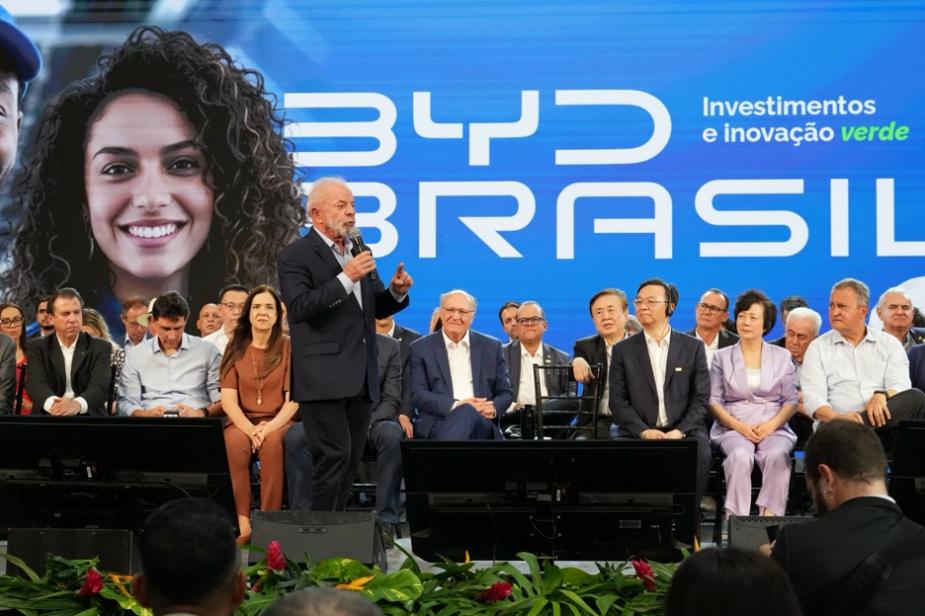
BYD's deep roots in Brazil are a vivid reflection of its globalization strategy moving from blueprint to reality. Eleven years ago, when the first BYD electric buses rolled onto Brazilian streets, they were still just a spark. Today, BYD has established the most advanced electric vehicle factory complex in Latin America. To date, BYD has earned the trust of over 170,000 owners in Brazil and, with sales of 67,244 vehicles from January to August of this year, maintained its top position in the Brazilian new energy vehicle market. This strategy goes beyond simple capacity transfer or market dominance; it builds an integrated industrial ecosystem encompassing R&D, production, localized supply chains, talent development, and job promotion. This has achieved a leapfrog development from "product export" to "technology export" and finally to "ecosystem and value sharing."
Even more significant is the naming of the road in front of the factory, "BYD Road." This marks the third road overseas named after BYD, following Lancaster in the United States and Rayong in Thailand, and signifies the Chinese brand's move from "physical presence" to "cultural embedding" in the globalization process.
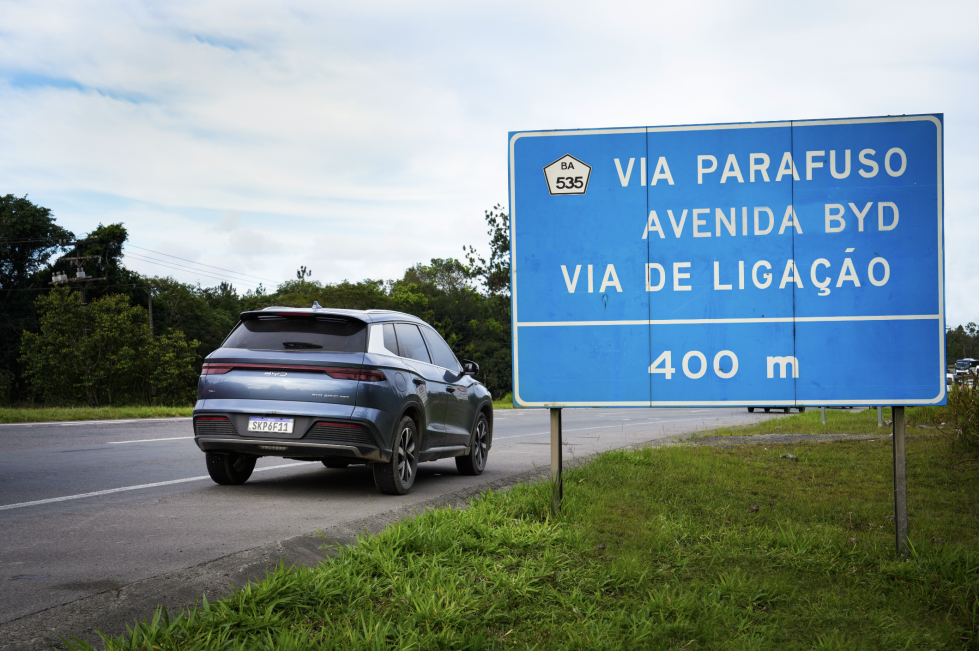
The 14 millionth vehicle is a glorious milestone and a new starting point for the future. As the global automotive industry marches towards electrification and intelligentization, and in areas where some traditional giants remain hesitant, BYD, with its unwavering long-term approach, demonstrates to the world that true globalization isn't simply replicating products, but rather deeply integrating into local communities, allowing technology to take root and sprout in every suitable soil, yielding the most suitable fruits.
As this Brazilian-made Song Pro rolls off the production line, it carries not only the ambition of Chinese brands to go global, but also the wisdom and practice of forging new paths through win-win cooperation amidst the current challenges of globalization. This path, pioneered by Chinese companies like BYD, may lead to a vast new blue ocean for the future development of the global automotive industry and even the green economy.
